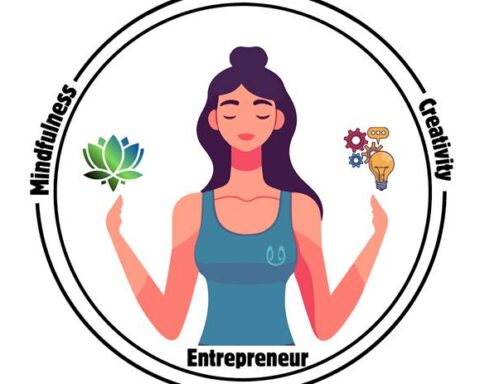No one is ever entirely free of stress…or are they?
Stress is something that we consider a standard in life. Sometimes stress is direr than it is simple. We stress as teens studying hard for tests and as adults stressing over how much money we need to make to break even. Stress creates a very cluttered mental space, which then begins to impact other areas of life, like productivity and health. In short, stress is something that we don’t want but that seems almost inevitable, especially as professionals.
This is where mindfulness comes in. You may have heard the term in passing, but are you familiar with what it is and what it can do for you?
What is Mindfulness?
To keep things simple, mindfulness is being very aware of the world around you on a moment-by-moment basis, as well as accepting it simultaneously. People assume that this is simple — aren’t we all already living and experiencing every moment of our lives? Experiencing something and actually being 100% aware of it, however, are two different things.
While it’s true that we are physically present for all of our lives, we aren’t always mentally present. The opposite of mindfulness is mindlessness, or essentially running on autopilot. Many people don’t fully understand how much of their life is spent lost in thought, avoiding outside stimuli.
Say that you’re walking down a busy city street. What are you doing? Are you keeping your thoughts to yourself, running through your daily to-do list? Are you listening to music from earbuds, lost in the sound and not paying full attention to the world around you? Both are examples of clogging our minds with something in order to avoid being cognizant. Someone who has embraced mindfulness is fully living in that moment, noticing things, and taking them in.
What Can Mindfulness do for you?
Mindfulness is often associated with total positivity; it’s something written off as a new age, existentialist way of avoiding life’s problems. However, it’s exactly the opposite.
Let’s look at stress and mindfulness. When someone who is used to mindlessness is confronted with stress, the negative emotion, and thoughts of the future cloud their vision. Anxiety gets in the way of productivity. Someone who is mindful, however, fully accepts the stressful stimuli and then formulates a plan based on their acceptance of their current predicament.
Practicing mindfulness can help reduce the harmful repercussions of stress, like panic and anxiety. Realize that stress is a state of being, an emotion — it isn’t a situation itself. When someone is mindful, they don’t experience stress because they experience a situation, not the harmful emotional side effect that comes with it.
Thus, mindfulness is growing in popularity as a way to increase productivity. When we are mindful of our surroundings, our emotional state and what we must do, we are much more likely to seize the day and get things done with no negativity involved.
Keetria is an entrepreneur, wellness advocate, and brand strategy coach for creatives & entrepreneurs with 16 years of public relations expertise working with some of the world’s leading brands, startups, media personalities, and entertainers. If you would like to work together, don’t hesitate to reach out!








